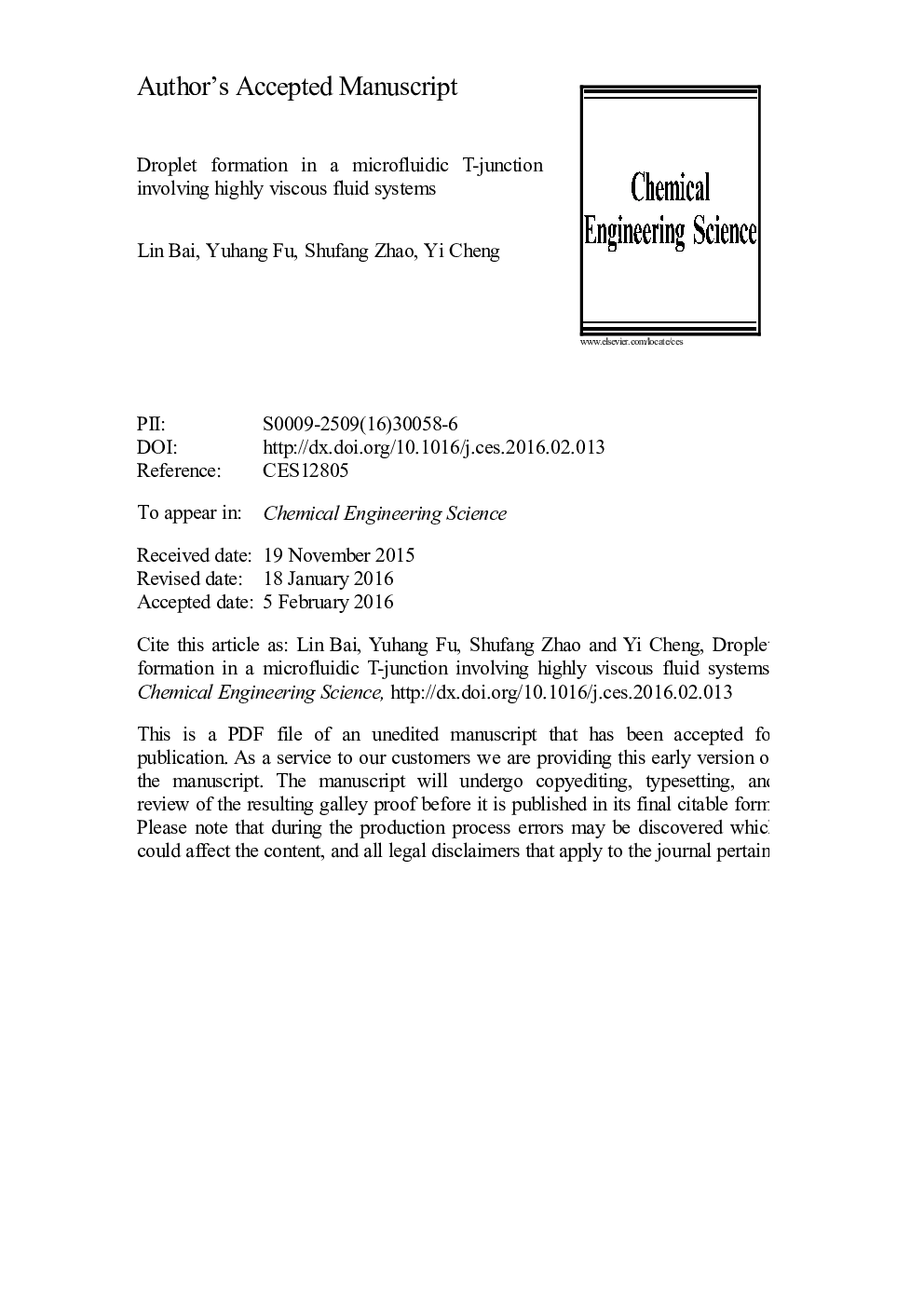| Article ID | Journal | Published Year | Pages | File Type |
|---|---|---|---|---|
| 6589238 | Chemical Engineering Science | 2016 | 29 Pages |
Abstract
Droplet formation involving highly viscous fluids is studied experimentally in a T-junction microchannel. Different combinations of fluids, including ionic liquids, glycerol and silicon oils, lead to large range of continuous fluid viscosity (μc=0.5-1000 mPas) and viscosity ratio (λ=1/270-120), allowing for comprehensive investigation on how fluid viscosity affects droplet formation. The high viscosity fluids are set to be either the continuous phase or dispersed phase, and the flow regime demarcation, droplet formation mechanism and droplet size scaling laws are studied respectively. Combining with literature results of the low viscosity fluid systems, the influence of fluid viscosity on droplet formation are then investigated as a whole. Some previous knowledge on droplet formation are verified to be still applicable in highly viscous fluid systems, while some others need to be revised. The revision involving droplet size scaling laws and flow regime distribution pattern in high viscosity fluid systems are discussed both qualitatively and quantitatively. To our knowledge, this is the first comprehensive experimental study on droplet formation with fluid viscosity covering such wide range of values. The revealed results are considered valuable in expanding our understanding on droplet breakup process and utilizing droplet-based microfluidic platforms to manipulate highly viscous fluids.
Related Topics
Physical Sciences and Engineering
Chemical Engineering
Chemical Engineering (General)
Authors
Lin Bai, Yuhang Fu, Shufang Zhao, Yi Cheng,
